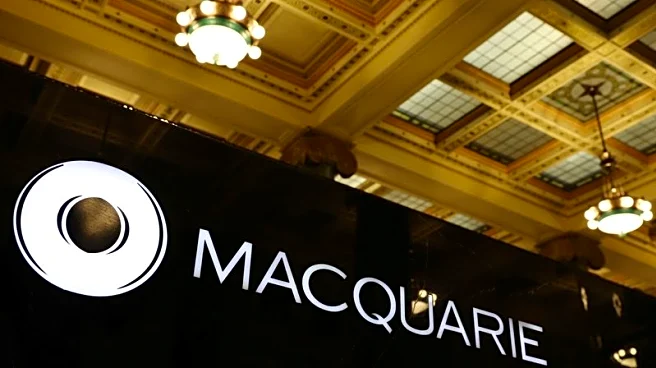What's Happening?
Tesla has approached the Delaware Supreme Court to reinstate CEO Elon Musk's $56 billion compensation package, which was previously voided by a lower court in January 2024. The court had cited board bias and insufficient disclosure to investors as reasons
for the decision. Tesla's attorney, Jeffrey Wall, argued that reaffirming the shareholder vote would resolve the case, while opposing counsel warned it could lead to endless litigation. The outcome of this appeal could impact Delaware's reputation as a corporate hub, especially as companies like Tesla consider relocating due to perceived judicial hostility. Musk could still receive billions under a backup $25 billion plan if the original award remains voided. Tesla has proposed a new $1 trillion compensation plan, indicating confidence in Musk's leadership as the company shifts focus to robotics and autonomous driving.
Why It's Important?
The appeal's outcome could significantly affect corporate governance standards and executive compensation practices in Delaware, a state known for its corporate-friendly legal environment. If Tesla succeeds, it may set a precedent for how shareholder votes are treated in compensation disputes, potentially influencing other companies' decisions to incorporate in Delaware. The case also highlights the tension between corporate boards and judicial oversight, with implications for how executive compensation packages are structured and approved. Additionally, Tesla's proposed $1 trillion compensation plan underscores the company's strategic pivot towards emerging technologies, which could have broader implications for the automotive and tech industries.
What's Next?
The Delaware Supreme Court's decision is awaited, with potential ramifications for corporate governance and executive compensation practices. If the court rules in favor of Tesla, it could reinforce the validity of shareholder votes in compensation matters, possibly encouraging other companies to adopt similar practices. Conversely, a ruling against Tesla might prompt companies to reconsider their incorporation in Delaware, affecting the state's status as a corporate hub. The court is also reviewing a $345 million legal fee tied to the case, with a ruling expected in the coming months.
















